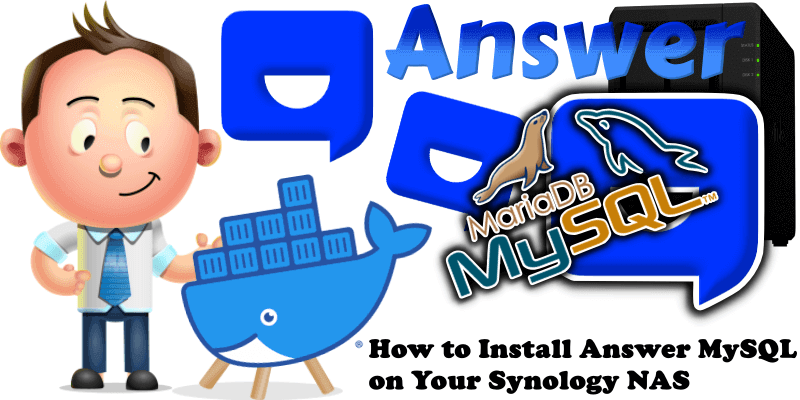
Do you remember my guide on how to install Answer on your Synology NAS that I posted some time ago? The installation instructions I proposed some time ago used SQLite as database. Today I’m proposing instructions for Answer to use the stable and secure MySQL as database. Answer is an open-source knowledge-based community software. You can use it to quickly build your Q&A community for product technical support, customer support, user communication, and more. In this step by step guide I will show you how to install Answer with MySQL on your Synology NAS using Docker & Portainer.
This guide works perfectly with the latest Answer v1.7.1 release.
STEP 1
Please Support My work by Making a Donation.
STEP 2
Install Portainer using my step by step guide. If you already have Portainer installed on your Synology NAS, skip this STEP. Attention: Make sure you have installed the latest Portainer version.
STEP 3
Make sure you have a synology.me Wildcard Certificate. Follow my guide to get a Wildcard Certificate. If you already have a synology.me Wildcard certificate, skip this STEP.
STEP 4
Go to Control Panel / Login Portal / Advanced Tab / click Reverse Proxy. Follow the instructions in the image below.
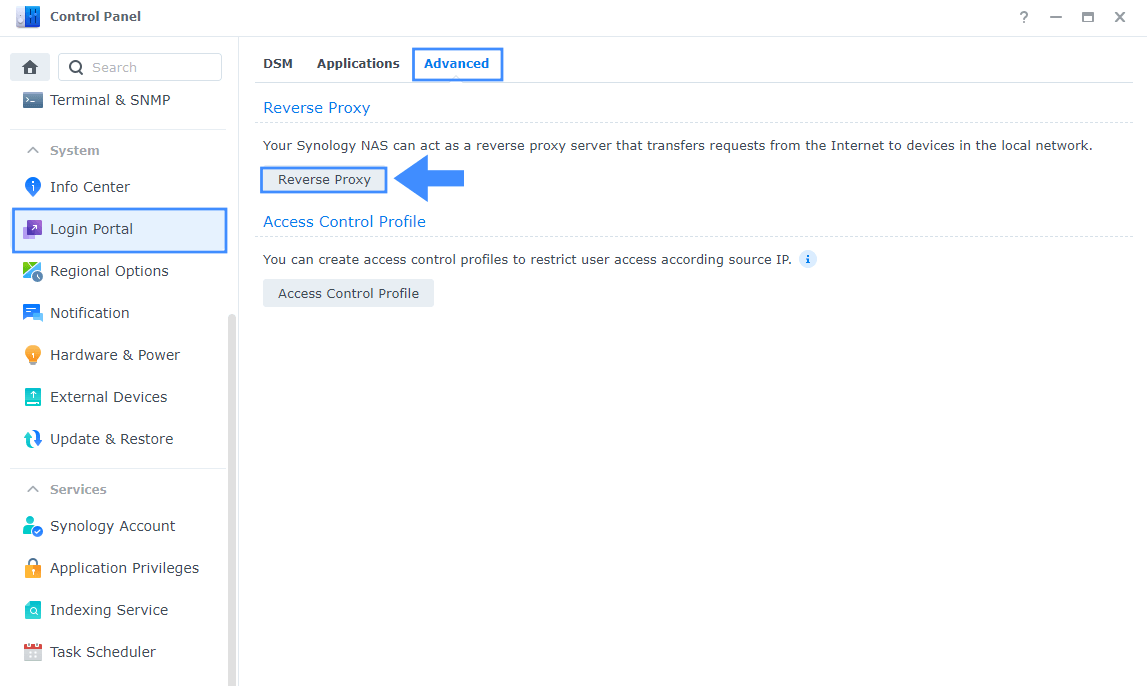
STEP 5
Now click the “Create” button. Follow the instructions in the image below.
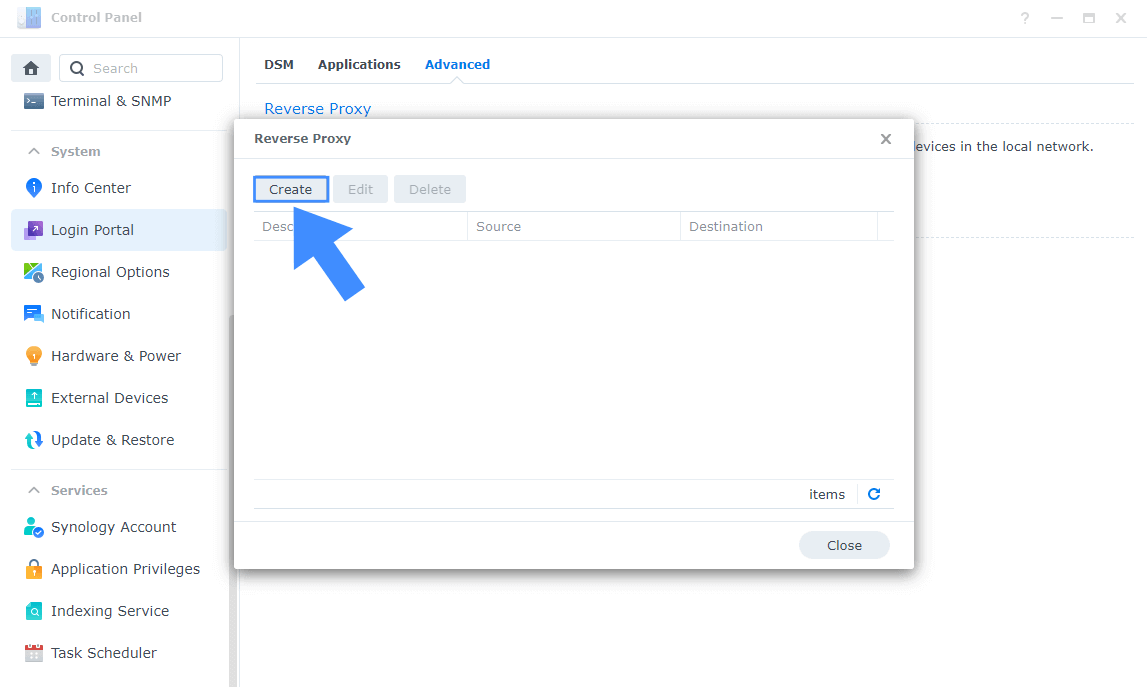
STEP 6
After you click the Create button, the window below will open. Follow the instructions in the image below.
On the General area, set the Reverse Proxy Name description: type in Answer. After that, add the following instructions:
Source:
Protocol: HTTPS
Hostname: answer.yourname.synology.me
Port: 443
Check Enable HSTS
Destination:
Protocol: HTTP
Hostname: localhost
Port: 9835
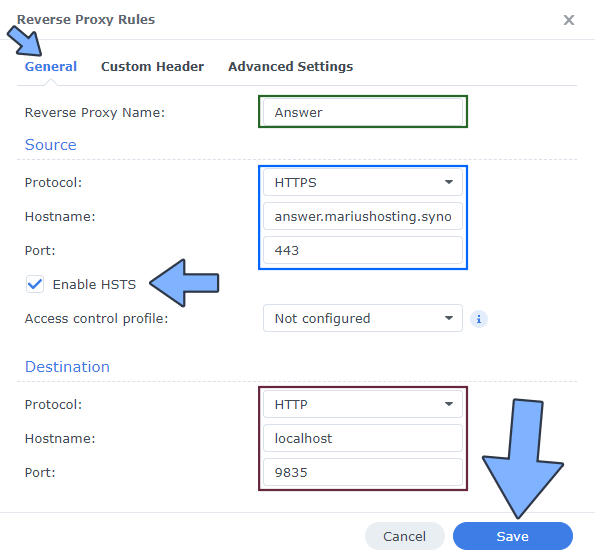
STEP 7
On the Reverse Proxy Rules, click the Custom Header tab. Click Create and then, from the drop-down menu, click WebSocket. After you click on WebSocket, two Header Names and two Values will be automatically added. Click Save. Follow the instructions in the image below.

STEP 8
Go to Control Panel / Network / Connectivity tab/ Check Enable HTTP/2 then click Apply. Follow the instructions in the image below.
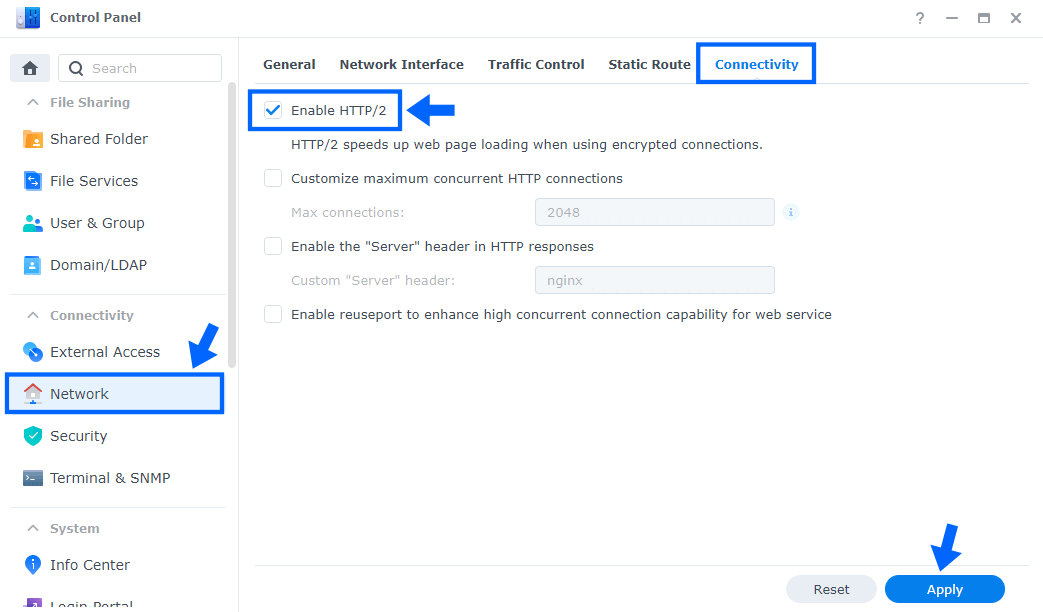
STEP 9
Go to Control Panel / Security / Advanced tab/ Check Enable HTTP Compression then click Apply. Follow the instructions in the image below.
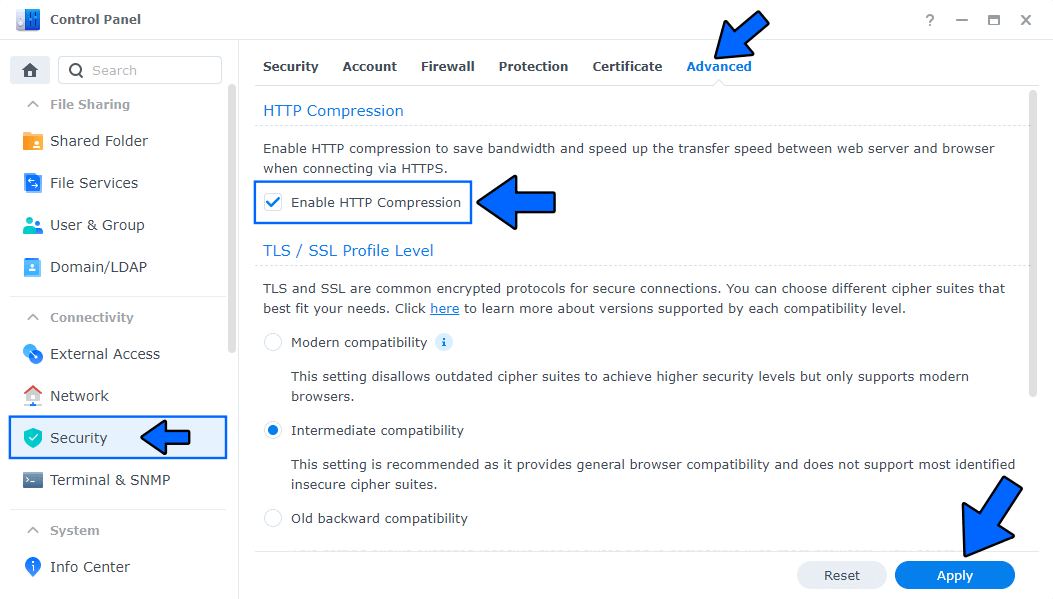
STEP 10
Go to File Station and open the docker folder. Inside the docker folder, create one new folder and name it answer. Follow the instructions in the image below.
Note: Be careful to enter only lowercase, not uppercase letters.
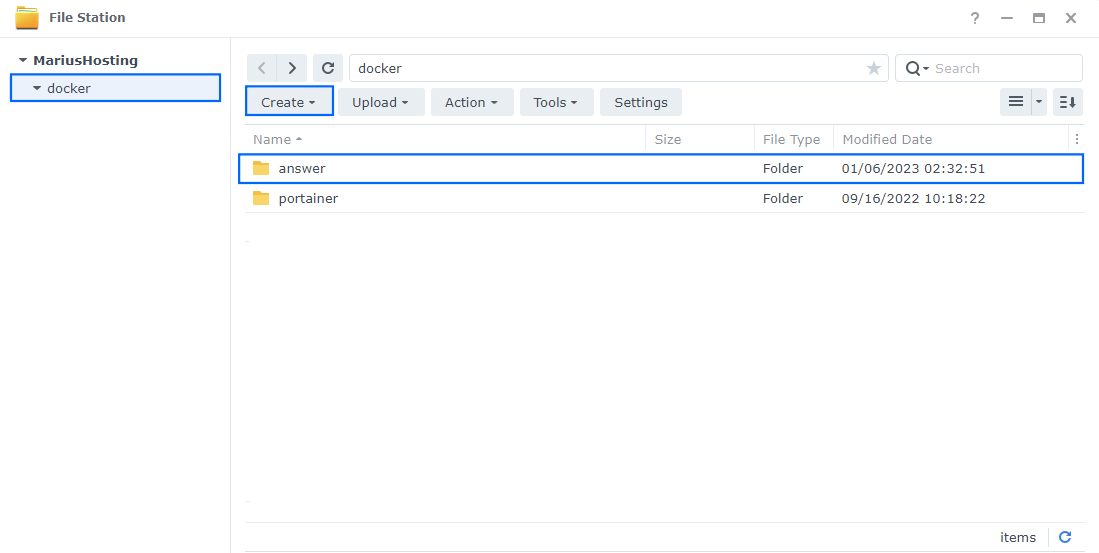
STEP 11
Now create two new folders inside the answer folder that you created at STEP 10 and name them data and db. Follow the instructions in the image below.
Note: Be careful to enter only lowercase, not uppercase letters.
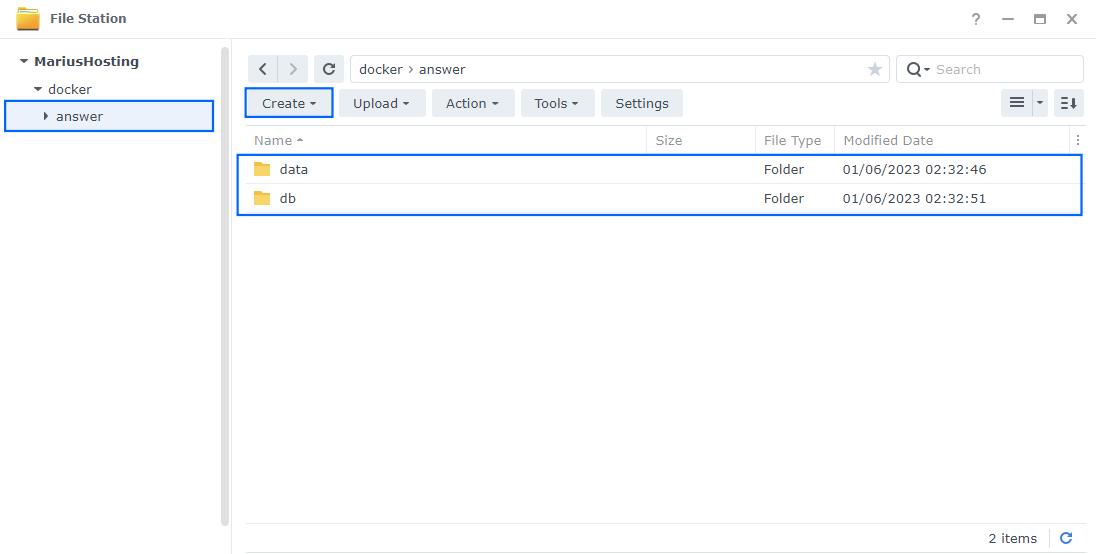
STEP 12
Log into Portainer using your username and password. On the left sidebar in Portainer, click on Home then Live connect. Follow the instructions in the image below.

On the left sidebar in Portainer, click on Stacks then + Add stack. Follow the instructions in the image below.

STEP 13
In the Name field type in answer. Follow the instructions in the image below.
services:
db:
image: mariadb:11.4-noble #LTS Long Time Support Until May 29, 2029.
container_name: Answer-DB
hostname: answer-db
mem_limit: 1g
cpu_shares: 768
security_opt:
- no-new-privileges:false
volumes:
- /volume1/docker/answer/db:/var/lib/mysql:rw
environment:
MYSQL_ROOT_PASSWORD: superpassword
MYSQL_USER: marius
MYSQL_PASSWORD: mariushosting
MYSQL_DATABASE: answer
TZ: Europe/Bucharest
restart: on-failure:5
answer:
image: apache/answer
container_name: Answer
hostname: answer
mem_limit: 1g
cpu_shares: 512
security_opt:
- no-new-privileges=true
healthcheck:
test: wget --no-verbose --tries=1 --spider http://localhost:80/ || exit 1
ports:
- 9835:80
volumes:
- /volume1/docker/answer/data:/data:rw
restart: on-failure:5
depends_on:
db:
condition: service_started
Note: Before you paste the code above in the Web editor area below, change the value for MYSQL_USER and type in your own username. marius is an example for a database user.
Note: Before you paste the code above in the Web editor area below, change the value for MYSQL_PASSWORD and type in your own password. mariushosting is an example for a database password. ⚠️Warning: Don’t use special characters for the password.
Note: Before you paste the code above in the Web editor area below, change the value for TZ. (Select your current Time Zone from this list.)
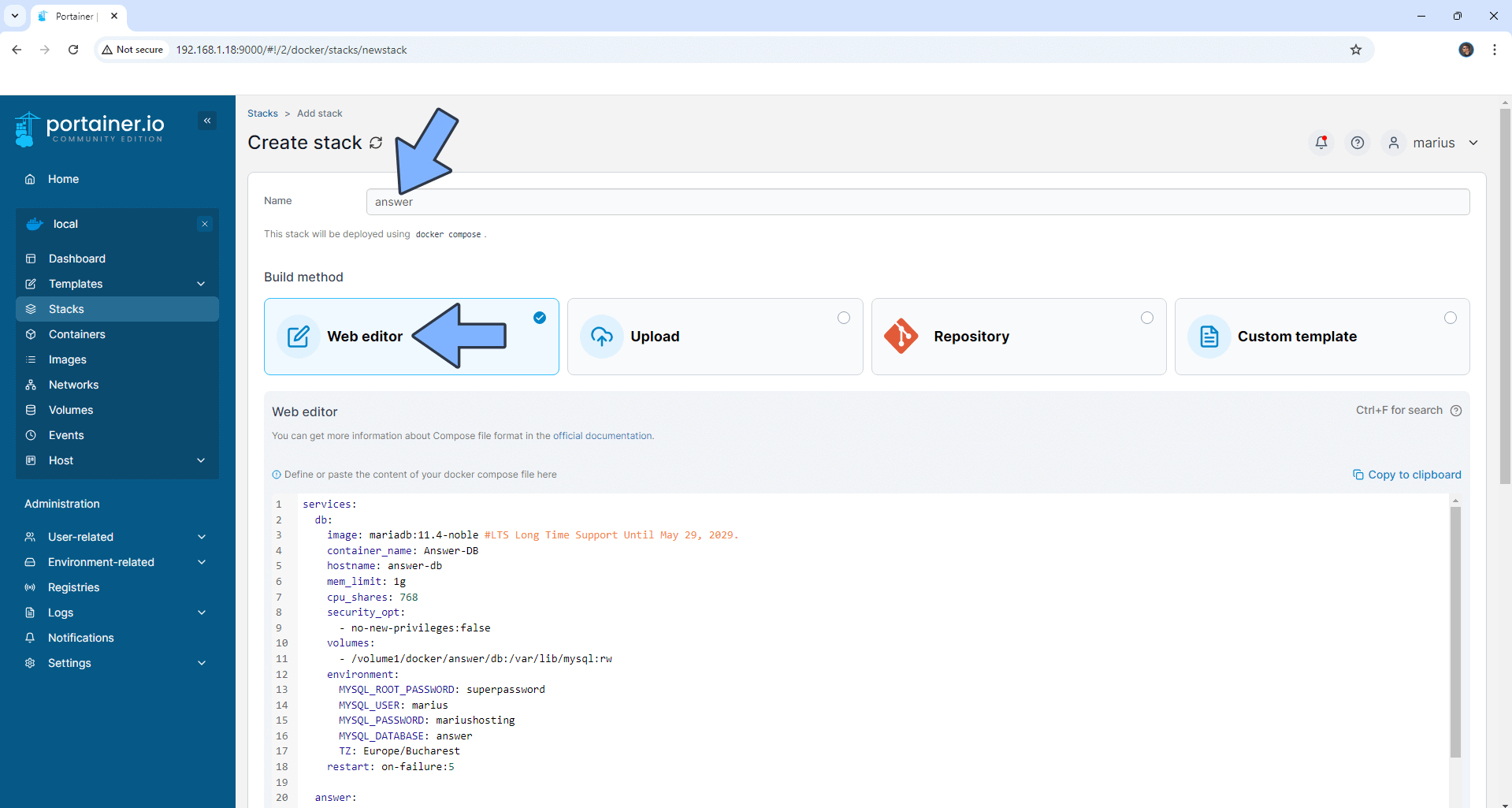
STEP 14
Scroll down on the page until you see a button named Deploy the stack. Click on it. Follow the instructions in the image below. The installation process can take up to a few minutes. It will depend on your Internet speed connection.
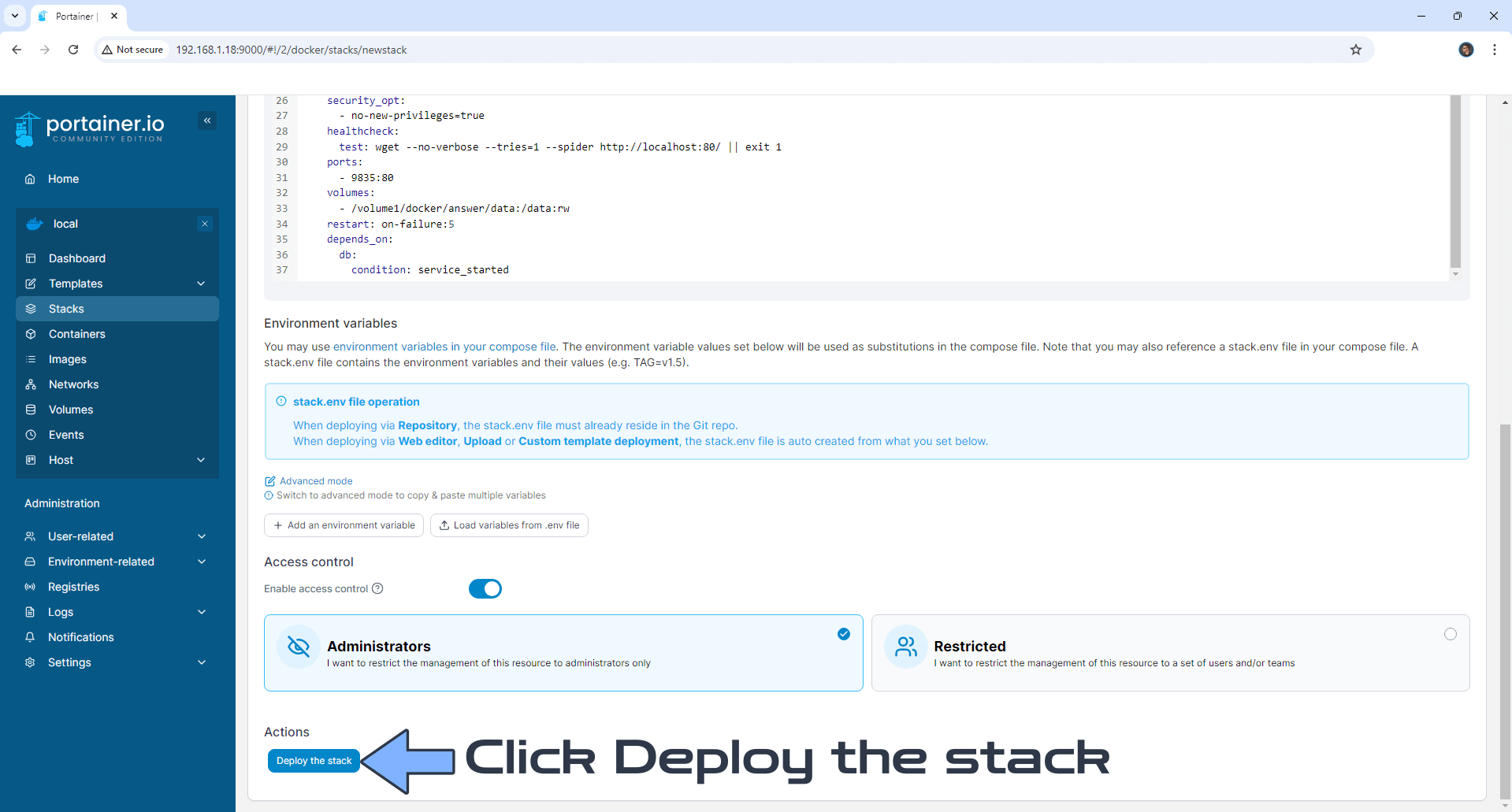
STEP 15
If everything goes right, you will see the following message at the top right of your screen: “Success Stack successfully deployed“.

STEP 16
🟢Please Support My work by Making a Donation. Almost 99,9% of the people that install something using my guides forget to support my work, or just ignore STEP 1. I’ve been very honest about this aspect of my work since the beginning: I don’t run any ADS, I don’t require subscriptions, paid or otherwise, I don’t collect IPs, emails, and I don’t have any referral links from Amazon or other merchants. I also don’t have any POP-UPs or COOKIES. I have repeatedly been told over the years how much I have contributed to the community. It’s something I love doing and have been honest about my passion since the beginning. But I also Need The Community to Support me Back to be able to continue doing this work.
STEP 17
Now open your browser and type in your HTTPS/SSL certificate like this https://answer.yourname.synology.me/install In my case it’s https://answer.mariushosting.synology.me/install If everything goes right, you will see the Answer installation page. Choose your favorite language then click Next. Note: If you forget to add /install after your synology.me DDNS, you will get an error message.
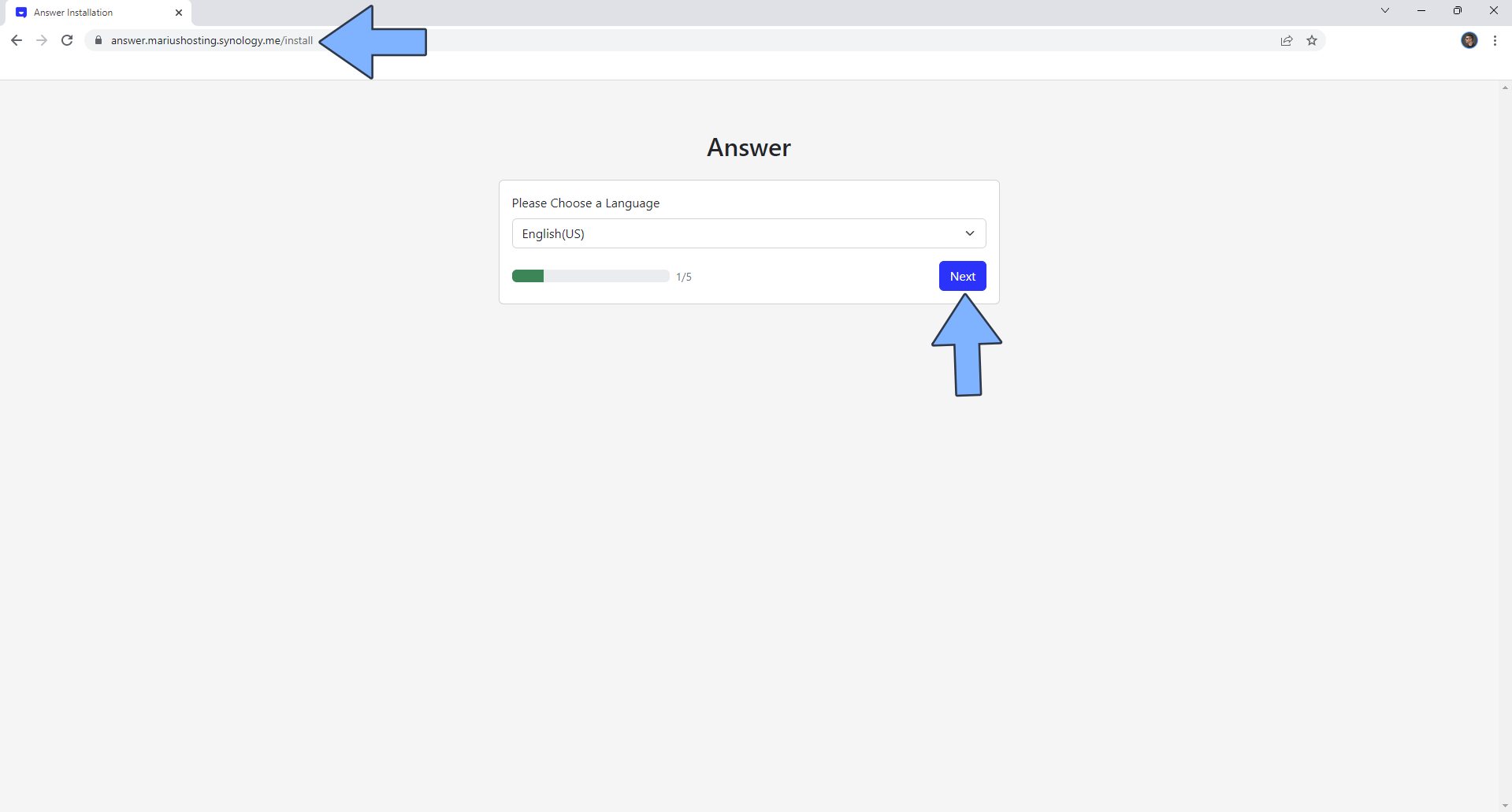
STEP 18
Choose MariaDB/MySQL as a Database Engine then type in your own database username and password that you have previously created at STEP 13. Click Next. Follow the instructions in the image below. In the Database host area, if db:3306 does not work, try with answer-db:3306 then click Next.
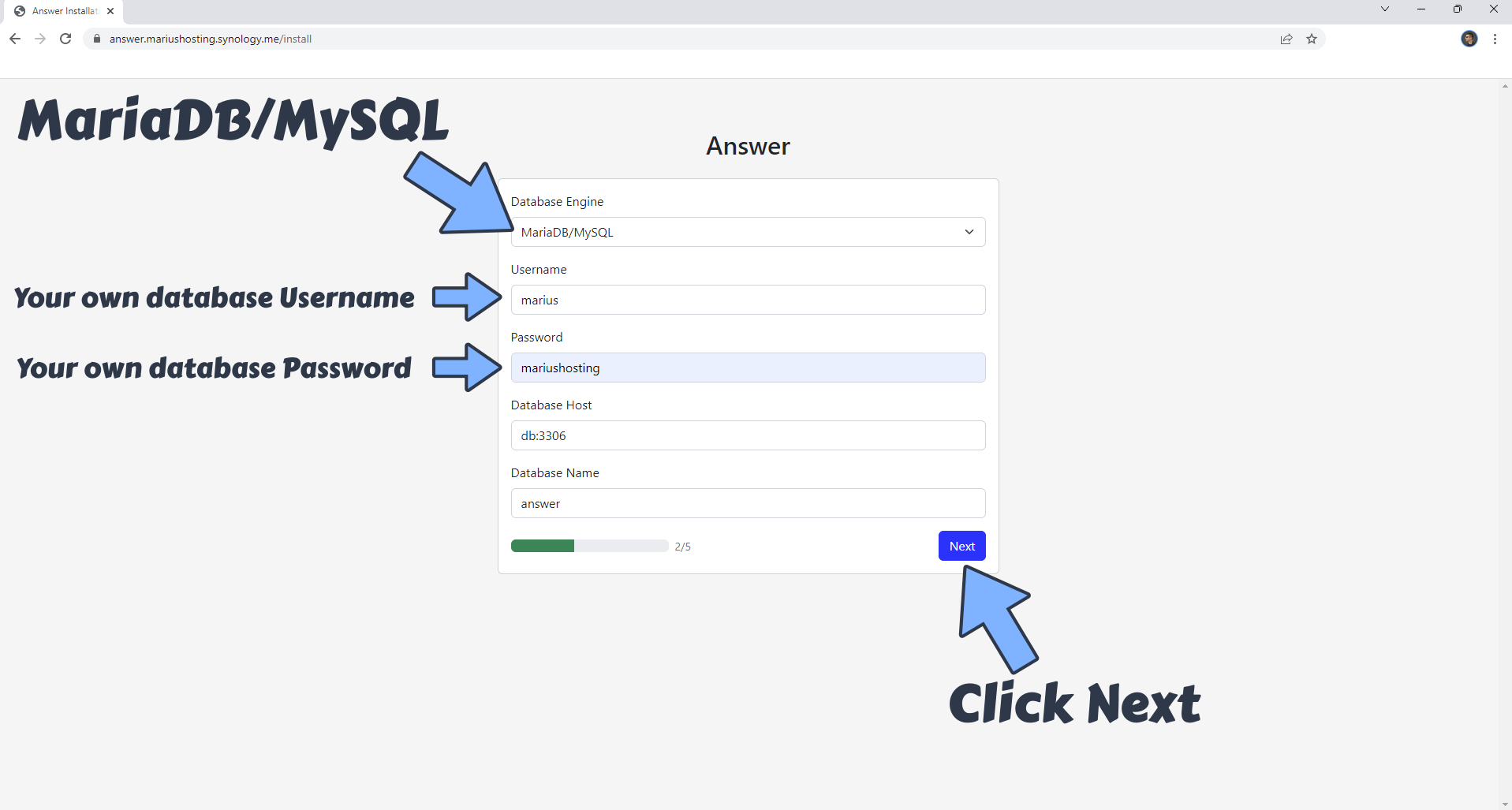
STEP 19
Click Next. Follow the instructions in the image below.
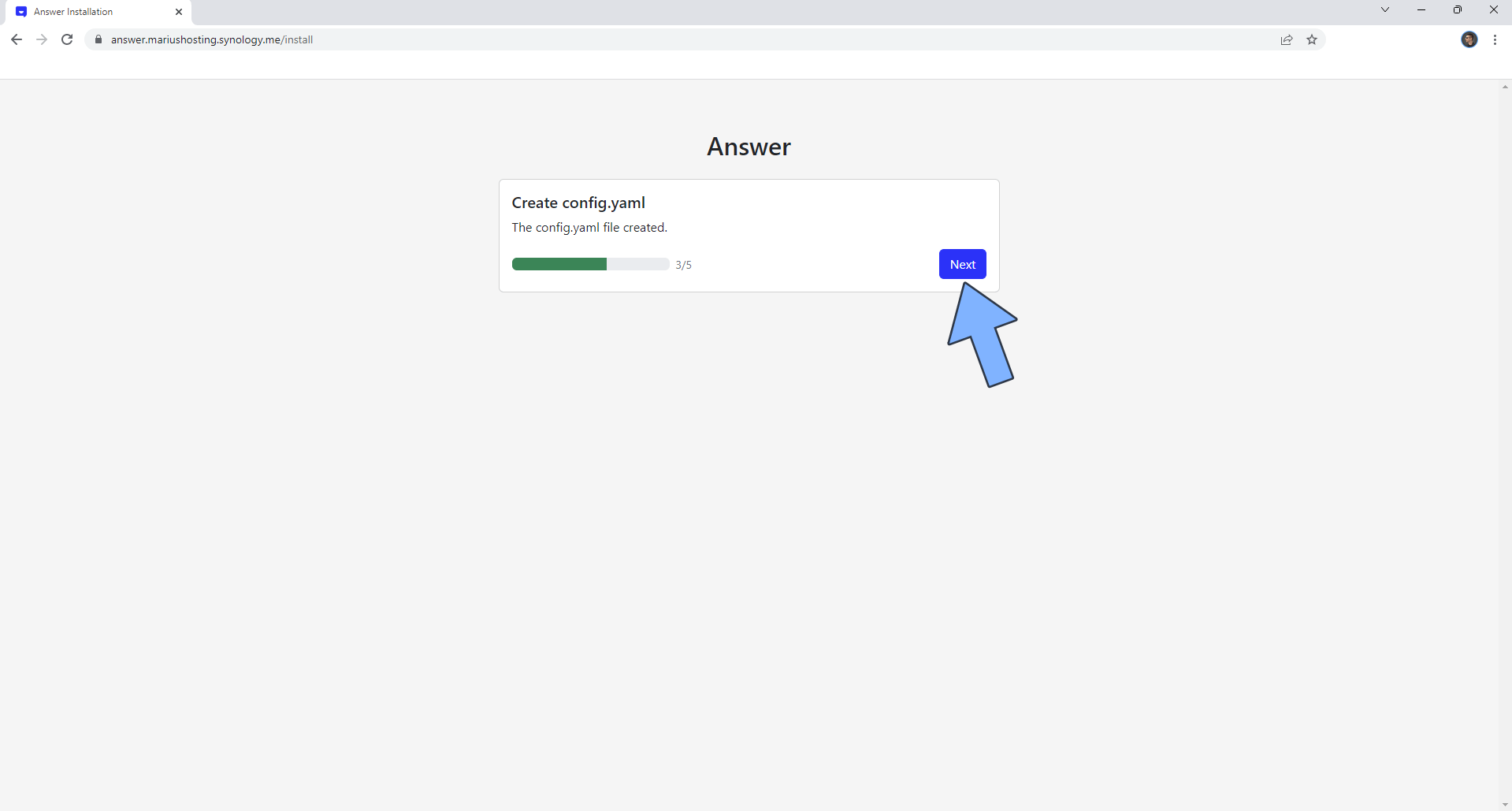
STEP 20
Add your own credentials plus your full synology.me DDNS address then click Next. Follow the instructions in the image below.
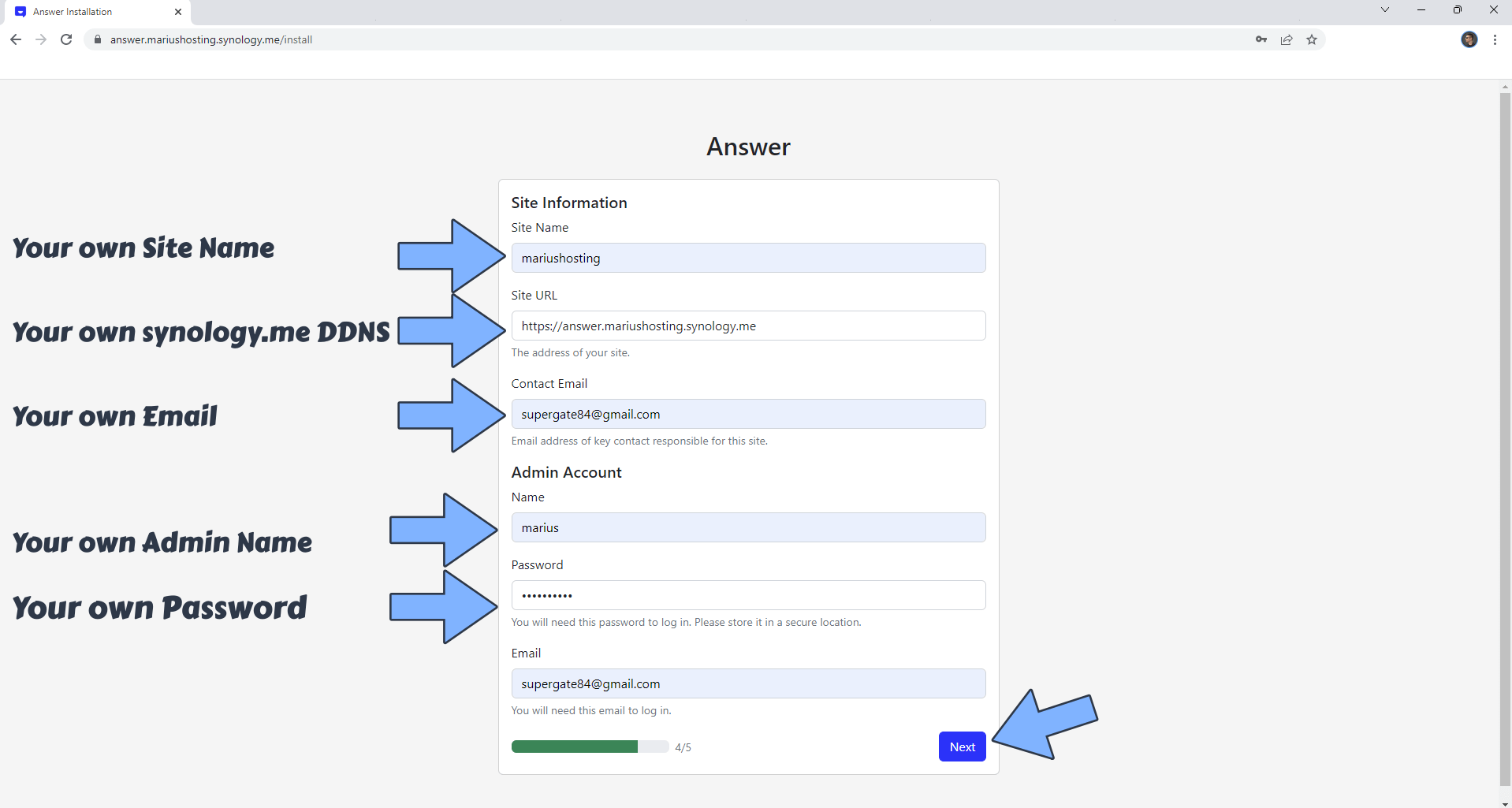
STEP 21
Click Done. Follow the instructions in the image below.
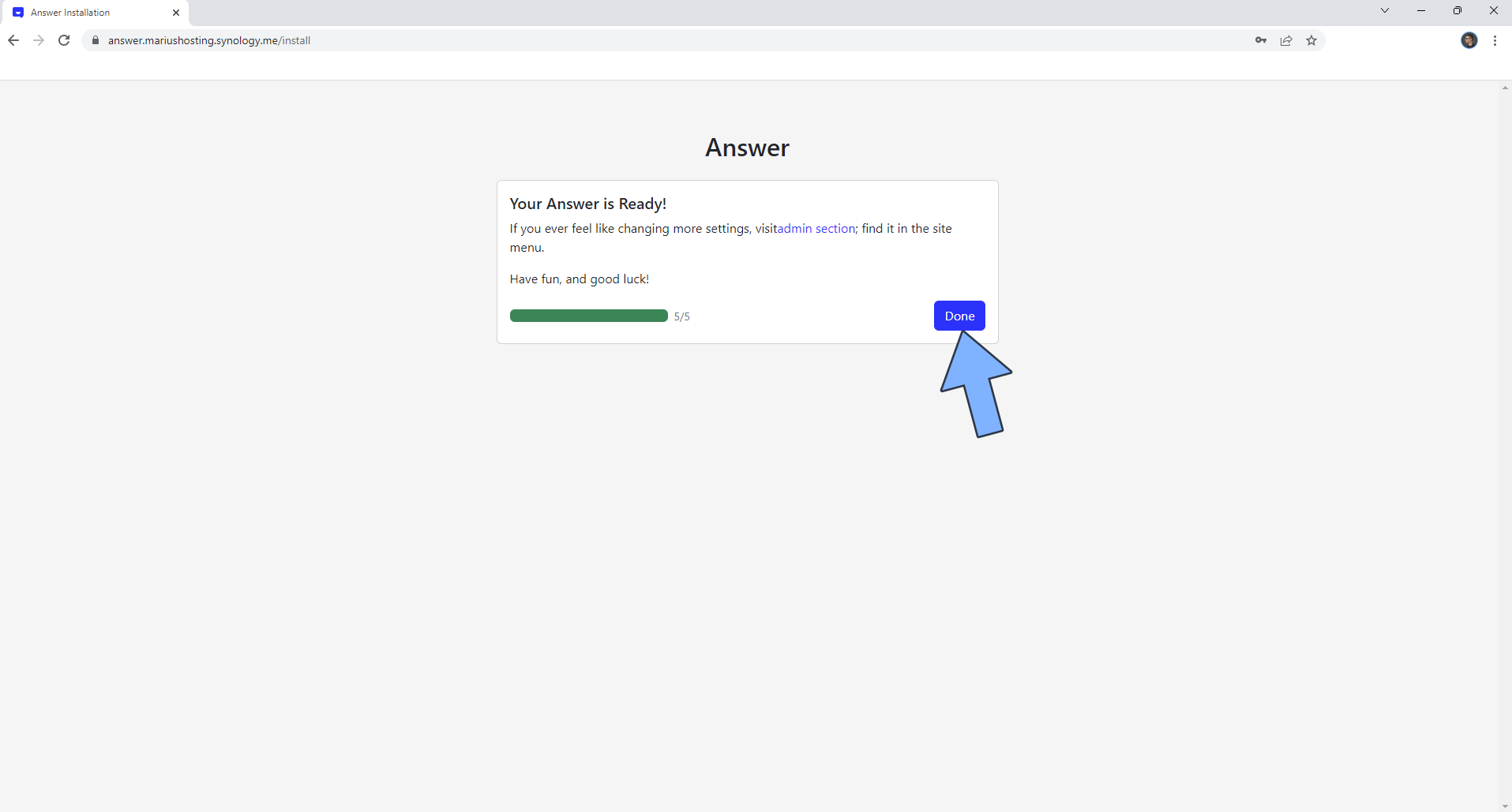
STEP 22
At the top right of the page click Log in then type in your own Email and Password that you have previously added at STEP 20. Click Log in. Follow the instructions in the image below.
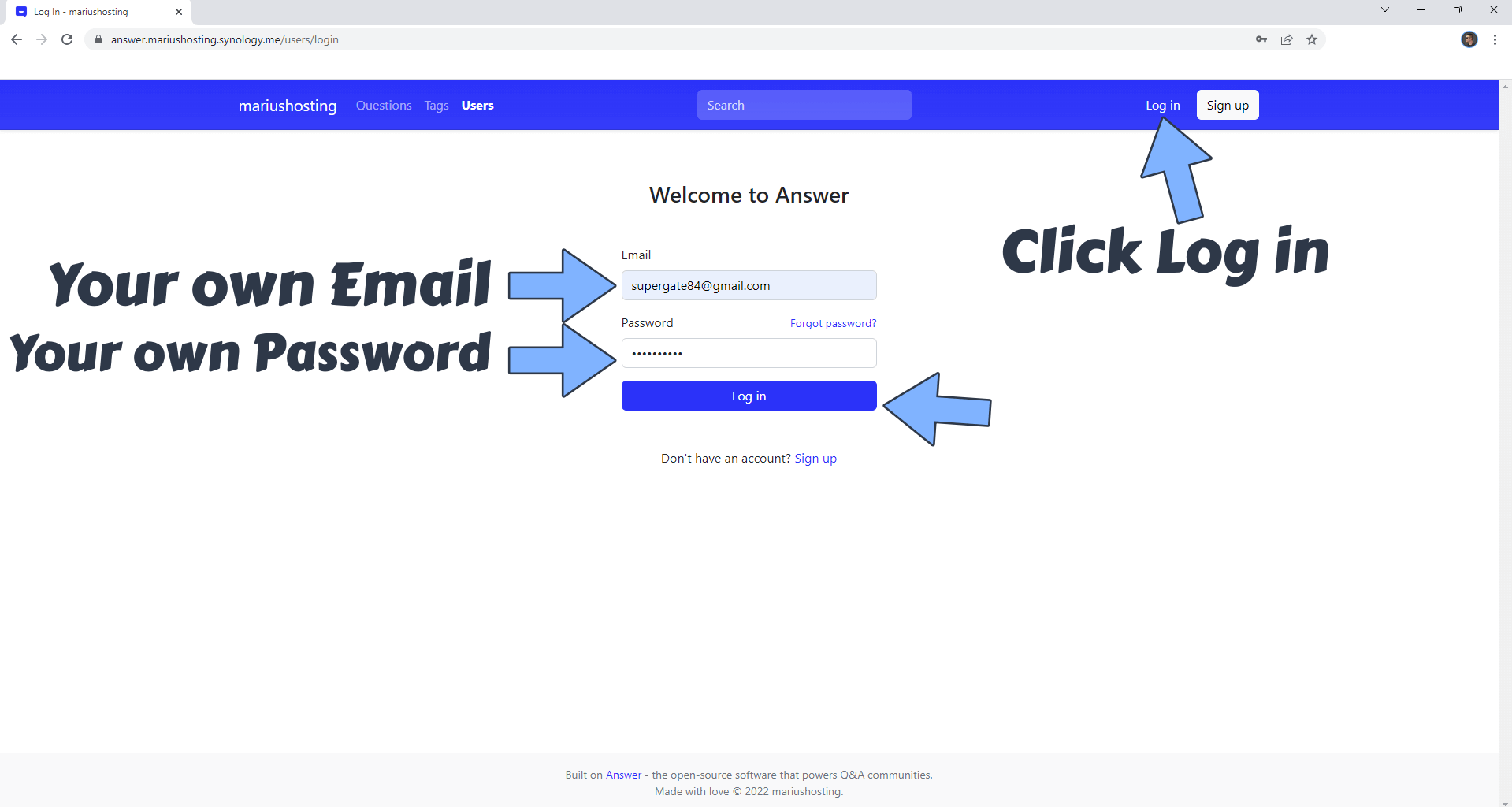
STEP 23
Add your first question! Follow the instructions in the image below.
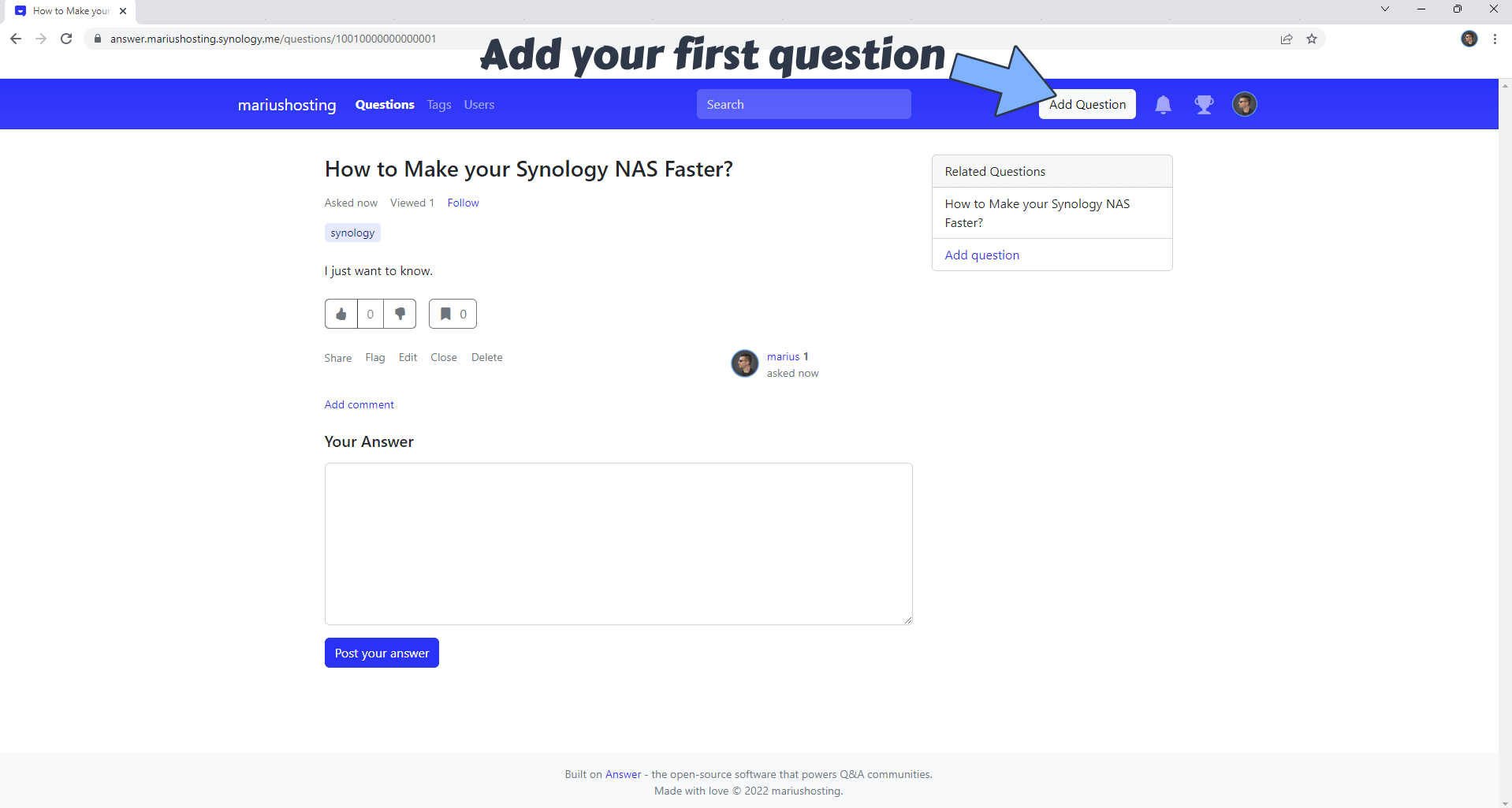
STEP 24
At the top right of the page click on the Profile icon then Admin to personalize your Answer website. Follow the instructions in the image below.
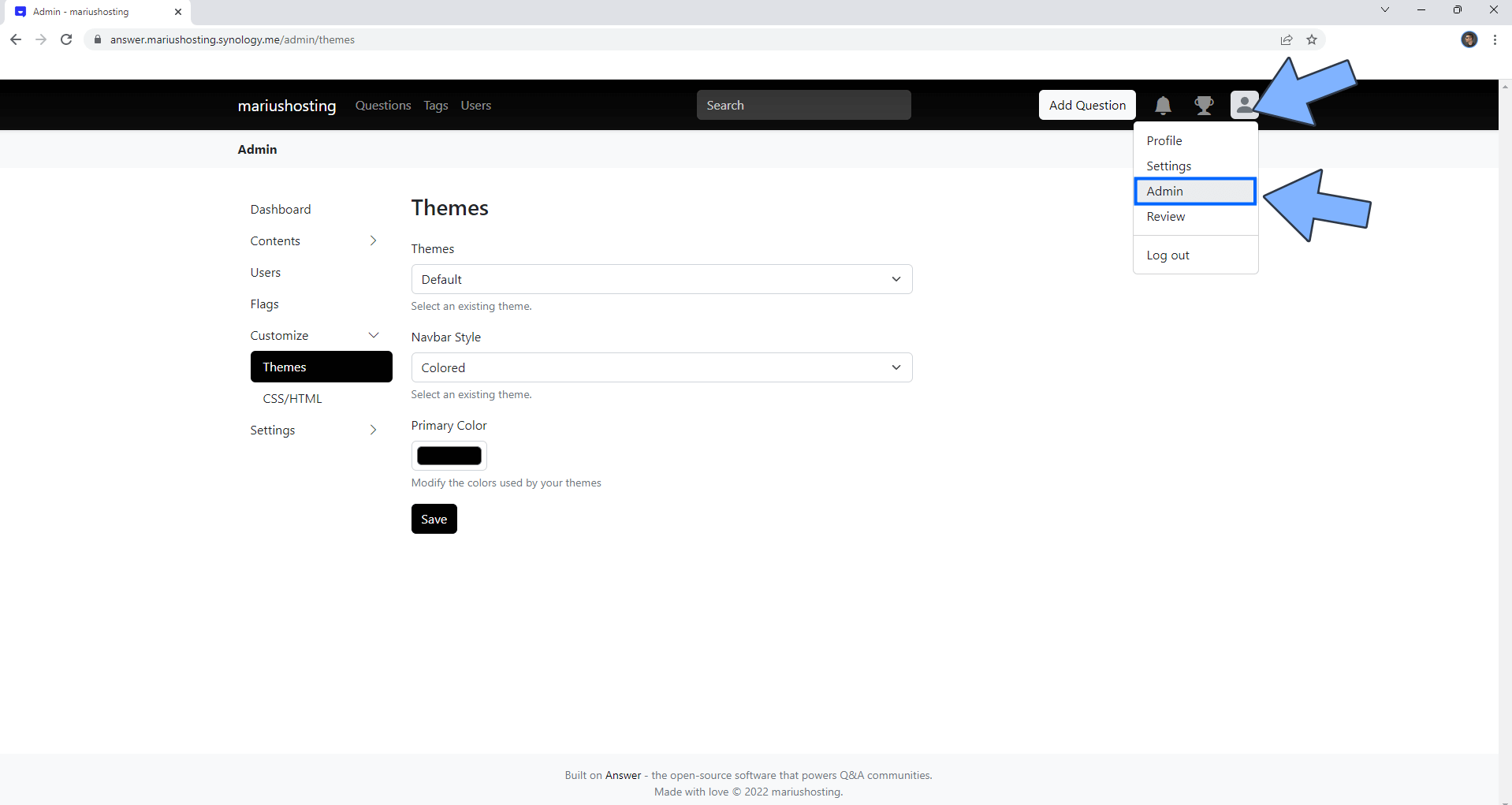
Enjoy Answer!
If you encounter issues by using this container, make sure to check out the Common Docker issues article.
Note: Can I run Docker on my Synology NAS? See the supported models.
Note: Find out how to update the Answer container with the latest image.
Note: How to Back Up Docker Containers on your Synology NAS.
Note: How to Free Disk Space on Your NAS if You Run Docker.
Note: How to Schedule Start & Stop For Docker Containers.
Note: How to Activate Email Notifications.
Note: How to Add Access Control Profile on Your NAS.
Note: How to Change Docker Containers Restart Policy.
Note: How to Use Docker Containers With VPN.
Note: Convert Docker Run Into Docker Compose.
Note: How to Clean Docker.
Note: How to Clean Docker Automatically.
Note: Best Practices When Using Docker and DDNS.
Note: Some Docker Containers Need WebSocket.
Note: Find out the Best NAS Models For Docker.
Note: Activate Gmail SMTP For Docker Containers.
This post was updated on Saturday / December 20th, 2025 at 2:25 PM
